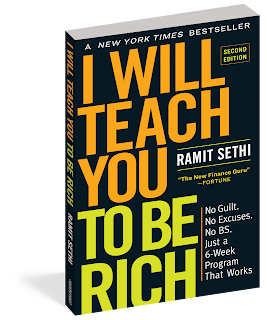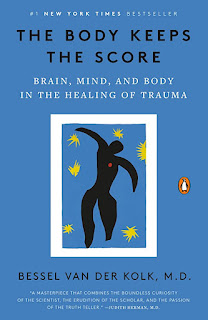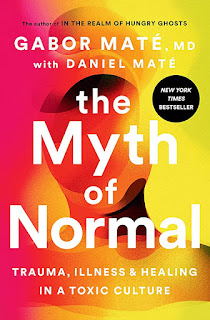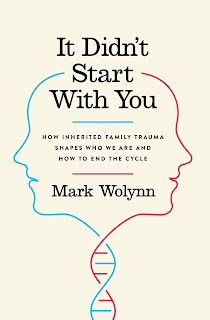‼️ I Will Teach You To Be Rich by Ramit Sethi ‼️
25/∞
Rating: ⭐️⭐️⭐️⭐️
👉 Buy this book! 👈 through my link and help me build this website! 😊
“Financial knowledge served with Cheesy American humour. There is some good advice and there is some bad advice.”
Me
Before I start reviewing this book, let me remind you some of the other books to read if you want to get your personal finance in order:
Rich Dad Poor Dad by Robert Kyiosaki (I loved that one!)
The Millionaire Next Door by J. Stanely and William D. Danko (The most eye opening)
The Richest Man in Babylon by George S. Clason (helped me to recap basic laws of getting rich)
Principles by Ray Dalio (made me to make my first investment)
The 10X Rule by Grant Cardone (motivated me a lot)
I’m going to review this book in the context of all other books on finance I have read so far.
First of all. All the authors named above have different niches and different ways of making money. While Ramit Sethi (author of this book) hates the real estate business, Grant Cardone loves it. Ramit says that real estate is not profitable, but I think that he just doesn’t know where, when and what to buy. When focusing on business, I go by Kyiosaki’s principle: invest and do business in area you tremendously enjoy! E.g. do not buy stock of some random company in some totally unrelated field, just because others are saying it is good. Find the field you enjoy. In my case it is tech, automotive industry and cryptos.
This book starts rather as “debt management” guide for people who are completely lost when it comes to “monies.” I’m going to comment on this part just very briefly. You guys are smart people, you know that credit card debt is easy to gain and at the same time it is the most expensive “loan” (if it can be called that way) out there. In case you won’t repay you credit cart debt by the end of the month, you are going to get charged roughly 15%, which is horrendous amount. It is basically usury.
There is a massive difference between Europe and North America (US and Canada for those bad in geography). To be honest, I was born in the Czech Rep. and my mindset and approach to money is very unique. I was born into the family of a banker. Although my both parents graduated at university with a degree in economics I do not think they know a lot about money. Since they both work in a bank they were alway solving their problems with loans. The payments were sometime so high that they weren’t able to give me money for monthly public transport pass. In the other words, they were boring money on bullshit and there were almost no money to buy day to day necessities. My mother is also not a modest woman like my grandmother. There were situations when my mother just needed to get that LV handbag and my father, stupid enough, bought it to her and then were telling me and my brother we have no money and he cannot pay for the day-to-day necessities. Therefore I’m somehow very disgusted by luxury items and women with expensive taste, because looking at my family, I can see how bad it can get. Another reason why I hate my family I that they did not pay much attention to me and they were eventually trying to make it up with expensive gifts. But it made me always uncomfortable as when somebody gives you something expensive, they would expect something expensive in return…
Growing up I decided that I’m never ever going to be the same. My mindset is simple: do not buy what you cannot afford. If you are going to buy something (e.g. a new iPhone) calculate the cost over at least 4 years (which is the time I keep most of my phones) and see if it makes sense (the most expensive models usually do not perform well in what I call Preis & Listing Verhältnis - Price vs. Performance ratio).
I apply this mindset on the business. When I was doing business, my partner was that kind of fuckhead like me mother. He wanted to spend more than we could have afforded… Which led a bunch of financial problems in the company and me kicking him out of the company.
Back to the way I see personal finances. Since my parents were spending lavishly on bullshit they and nobody needs, they never had any extra money to give me. So when I was sent to study in the United Kingdom, I wasn’t given any amount of money. To be clear I had a scholarship, but it was not enough. I ended up doing 3 jobs and going to university at the same time. My parents were like: that’s life, get used to it. I had to experience really tough situations due to lack of money, also I was constantly worried about money. But this story has surprisingly positive outcome: I learnt how to manage my personal finances. It means: no fucking credit cards, no retail cards and living below my means so I can save and have better life than my parents did have.
Many of the knowledge in this book is going to be rather useful in North America since Ramit is an Indian-American. He recommends whole range of US banks and investment companies which are not present in Europe.
Although some of the recommendations are applicable in North America only, some principles are the same in Europe. E.g. retirement saving scheme. I’m a proud owner of one of those.
I also would recommend you to get a retirement saving account. In the Czech Rep. we have “a state guaranteed” pensions. But they are so fucking low that no Czech person can even dream about cruises in Caribbean as German pensioners. Therefore, I’m happy to take over responsibility of Czech state and save up for myself, because I know that what the Czech state is going to give me in the future, will be “bean money” or “small allowance.”
Peer pressure
I do not spend lavishly on bullshit I do not need. Like fucking vacation. I have my toys (car and motorcycle) and I manage to upkeep both in a superb condition. But then some people are like my mother. She will be like: “Look what they have, they get to go to vacation, they have a new car, we gotta have it, too!” I’d be like: “You are fucking stupid, you have never saved a dime in your fucking life and you would buy and spend on bullshit, which is going to make you temporarily happy, but won’t bring you anything in a long term.”
Barac Obama said something like this: “A car is still a car. It takes you from A to B. There is a not much difference between an expensive car and a 1000 USD car.”
My point here is: do not give to peer pressure. If your friends are getting a new phones, it does not mean you need to get one as well. The same applies with cars, clothes, vacations etc.
Invest or live in poverty…
The foundation stone of living a rich life is “to save” and consequently “to invest.” Author of this book is recommending whole range of assets. E.g. Stocks, mutual funds, index funds, set date retirement funds, bonds etc.
He recommends especially retirement set date funds. They are capable of producing between 5% and 10% growth in 10 years. On the other hand, he calls betting on stocks an insanity, because you never know which stocks are going go up and which down. Nobody can tell…
Ramit also mentioned a story about a man who invested into art. The truth is, he bought 1300 paintings. When the price went up, only 2 painting skyrocketed and made up 1/2 overall worth of his portfolio.
On the other hands, a sophisticated knowledge of financial markets can get you very far. I would recommend here Ray Dalio’s Principles as he is a financial wizz who was able to predict economic crises of 2008 and make a massive profit there.
The problem I have with Ramit is that as a typical American he wants everything to sound easy as fuck… He says to put your money into funds instead doing the work by yourself and researching stocks and cryptos. Folks, if you want to get rich, you gotta do the research, you gotta do the work. Moreover, you gotta educate yourselves… Ramit has nice boasting sentences about how to get rich but some of them are way too vague…
Burn your cash from tax returns
This is another stupid advice Ramit is giving his readers. He encourages them to not save all unexpected money coming in. He encourages his readers to burn 50% of it. Sorry, but I find this advice totally dumb and stupid.
How to invest
In my reviews I often mention how fucking useless and inefficient Czech universities are. Well, I did pass the Financial law exam and until this day, I did not know what the bonds are. This is the proof for me of how Czech universities are only wasting your time and money.
In the bigger picture it is all about combing high, mid and low risk assets. Cryptos have the highest risk ratio, then stocks and it comes to bonds (your loan to government for a set profit).
Here I’m only going to say. Do your research, invest in the areas you enjoy and leave the investments to sit there for at least 5 or 10 years.
Your financial plan
Your income shall be divided as follows:
40% rent / mortgage
10% retirement savings
10% investment savings (high risk)
10% weddings / mortgage down payments etc.
10% food, perks and other shit
10% unexpected expenses
I’m going by this plan. It is the only way to save, be independent and not being worried that you are going to get fired (because then you have savings to lean on).
Conclusion:
The book contains some good and some bad advice. Nevertheless, I still think it is worth of reading and finding the information which is going to help you to improve your life.
⭐️⭐️⭐️⭐️
👉 Buy this book! 👈 through my link and help me build this website! 😊
Feel free to like, share and comment or recommend books/courses you find inspirational yourself. I’m keen to hear about them.
Coming Up Next: Masterclass: Howard Schultz Business Leadership
Peace 🧘♂️✌️🌱











Comments
Post a Comment